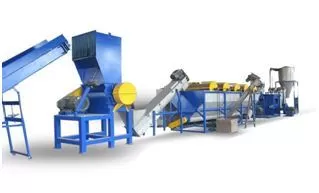Sweden, renowned for its environmental consciousness, has made significant strides in both innovation and plastic recycling. Yet, even the most eco-friendly nation faces challenges amid the global plastic pollution crisis. How can we learn from Sweden’s successes to improve our own plastic recycling systems?

Sweden leads the world in environmental innovation and plastic recycling. Through a combination of policies, technology, and societal awareness, they’ve increased recycling rates and reduced plastic pollution. This not only protects the environment but also boosts the economy.
Curious about how Sweden achieves these feats? Let’s dive into the details.
What Are Sweden’s Environmental Policies?
Sweden’s environmental policies are exemplary. They’ve implemented a series of strict laws and regulations to ensure plastic waste is managed effectively.
- Producer Responsibility: This policy mandates that manufacturers are responsible for the entire lifecycle of their products, including recycling and disposal.
- High Environmental Taxes: Companies using plastic products face hefty taxes, encouraging the use of sustainable materials.
How Advanced Are Sweden’s Recycling Technologies?
Sweden’s innovations in recycling technology are impressive. They use cutting-edge technology to improve recycling efficiency and reduce environmental impact.
- Automated Sorting Systems: Utilizing AI and robotics, these systems efficiently sort plastic waste.
- Chemical Recycling: This method converts old plastics into new materials through chemical processes, achieving closed-loop recycling.
How Does Social Awareness Impact Plastic Recycling?
Sweden’s success is not just due to policies and technology but also because of strong social awareness. Citizen participation is crucial for achieving high recycling rates.
- Environmental Education: From an early age, Swedish children receive environmental education, fostering a culture of sustainability.
- Community Involvement: Regular community events promote recycling and encourage residents to participate actively.
How Do Businesses Contribute to Plastic Recycling?
Swedish businesses play a pivotal role in plastic recycling. They drive progress through innovation and collaboration.
- Corporate Collaboration: Companies collaborate to develop sustainable recycling solutions.
- Innovation: Businesses continuously innovate, introducing new recycling technologies and products that support the circular economy.
How Does Sweden Handle Hard-to-Recycle Plastics?
Despite advances in recycling, some plastics are challenging to recycle. Sweden employs various strategies to tackle this issue.
- Energy Recovery: Hard-to-recycle plastic waste is converted into energy, reducing landfill use.
- Research and Development: Ongoing R&D efforts seek new recycling methods and alternative materials.
What Can We Learn from Sweden?
Sweden’s experiences provide valuable lessons for improving our plastic recycling systems. We can learn a lot from their approach.
- Policy Support: Implement and enforce strict environmental regulations to boost recycling.
- Technological Innovation: Invest in R&D to enhance recycling technology.
- Public Engagement: Raise environmental awareness and encourage public participation in recycling.
Conclusion
Sweden’s achievements in environmental innovation and plastic recycling demonstrate how a nation can pursue sustainable development through comprehensive measures. By learning from their example, we can enhance our environmental systems and contribute to a healthier planet for future generations.
